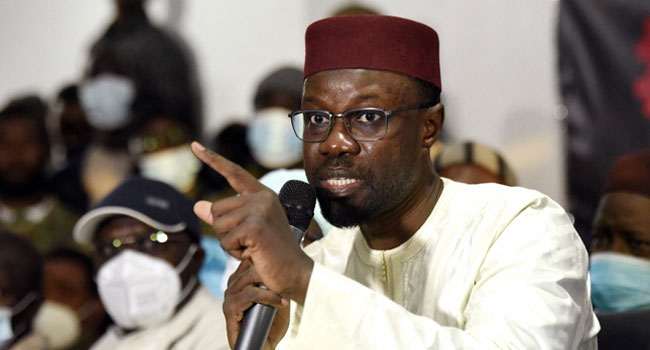As of Saturday, the death toll in Senegal has risen to 15, following the contentious court conviction of opposition leader, Ousmane Sonko. The political figure’s continuing legal issues have instigated unusual instances of violent conflict in a country usually recognised for its stability in the West African region. Foreign allies have called for a restoration of tranquillity amidst the ongoing disturbances reported in Dakar’s suburbs.
However, areas that witnessed violence on Thursday and Friday were reported to be in a state of calm, according to the interior minister, Antoine Diome. He acknowledged a decline in the intensity of the protests and disclosed that approximately 500 arrests have been made since the onset of the demonstrations. Intriguingly, he alluded to suspicions of foreign involvement, stating that “the country is under attack” without providing further details.
Sonko, a 48-year-old former tax inspector, was initially accused of rape but was later convicted on a lesser charge of morally “corrupting” a young woman. He was subsequently sentenced to a two-year prison term. Sonko has maintained that the allegations are part of a governmental scheme to derail his political ambitions ahead of next year’s presidential election. His conviction could disqualify him from participating in the 2024 poll.
In the wake of the court’s ruling, clashes broke out between Sonko’s supporters and the police, culminating in 15 deaths over two days, as per government statistics. Numerous shops and businesses were plundered, leading to the deployment of the army to the streets.
Despite the military presence, skirmishes ensued on Friday night in parts of Dakar and Ziguinchor. Minister Diome accused the protesters of plotting to destabilise the nation. Sonko, noted for his sharp tongue and charisma, has garnered a significant youth following who appreciate his attacks on what he dubs the “state mafia”. He has persistently spoken out against issues such as debt, poverty, food insecurity, and corruption.
However, supporters of President Macky Sall view Sonko as a troublemaker whose actions have bred instability. Dakar residents fear the possible ramifications of Sonko’s arrest, with many stating they feel unsafe amidst the escalating unrest.
As the tension heightens, the government has limited access to social networks including Facebook, WhatsApp, and Twitter, citing the need to halt the spread of “hateful and subversive messages.”
International concern over the situation is growing, with the United States, the African Union, the United Nations, the European Union and Senegal’s former colonial power, France, all expressing their worry over the violence.
Image Credit: Seyllou / AFP





